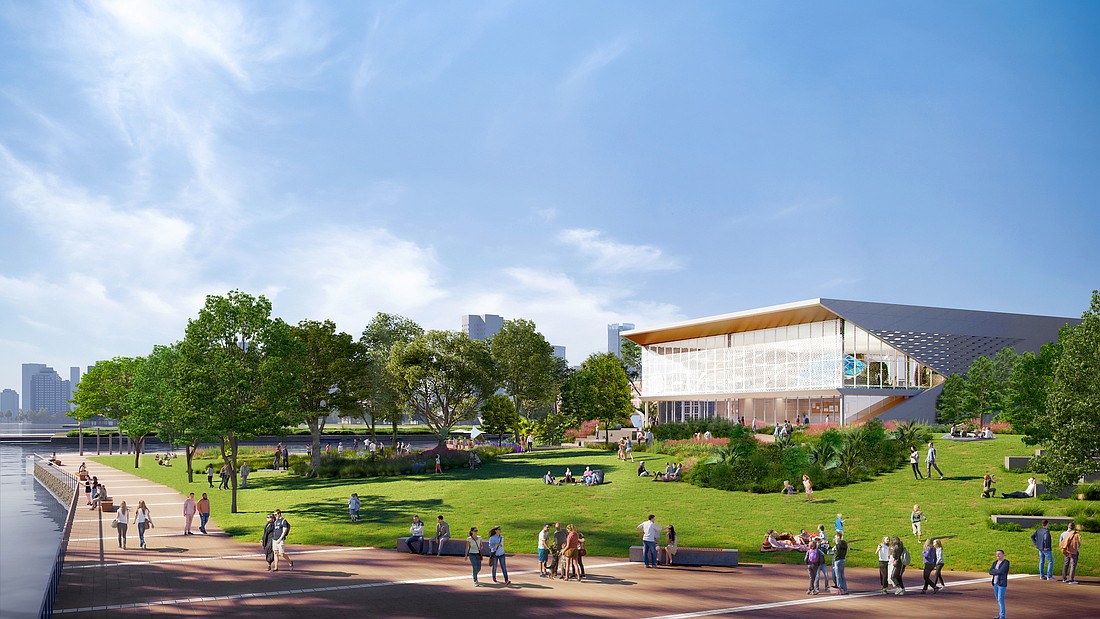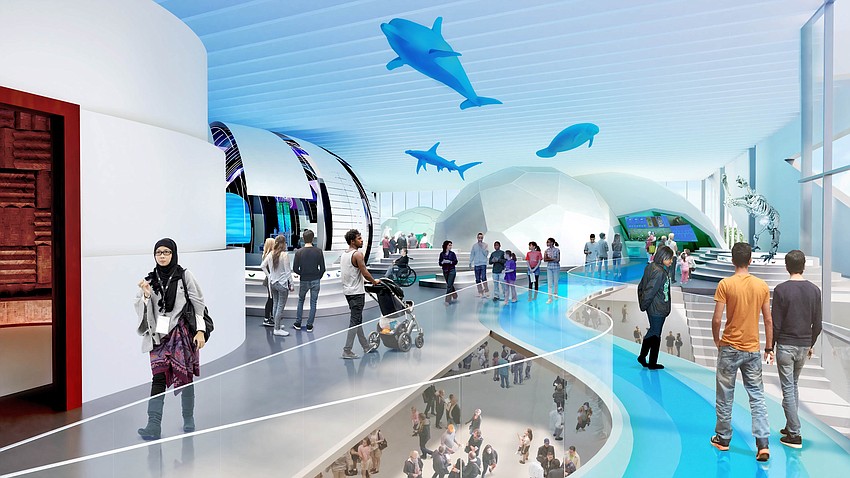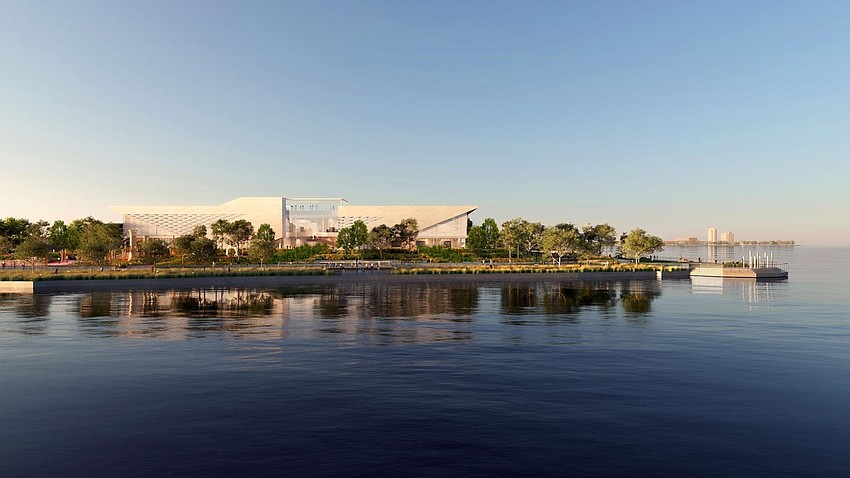
The Museum of Science & History is $1.5 million shy of meeting an extended deadline to raise $40 million in private funds to build its proposed new facility on the Northbank, MOSH CEO Alistair Dove said June 3.
In a presentation to the Meninak Club of Jacksonville civic organization, Dove said the museum has raised $38.5 million toward the June 30 deadline for private funding tied to MOSH’s redevelopment agreement with the Downtown Investment Authority for the property for its new museum.
Asked by an audience member if the museum could turn to Jacksonville Jaguars’ owner Shad Khan as a donor, Dove said Khan was the “lead guest” on the museum’s capital campaign and that “our hope is that he will also come in with a closing gift at the end.”
In 2020, Khan and his family committed an initial $5 million gift to relocate the museum. Other major donors include CSX ($10 million) the James E. and A. Dano Davis Family Charities ($1 million) and Jill and Jed Davis ($500,000), the Lastinger family ($1 million from the Lastinger Family Foundation and $100,000 from Lindsey and Ryan Riggs) and the Neviaser Foundation ($1 million).

During Dove’s presentation to Meninak, he also said the museum was working to obtain a matching grant from the city and had received $5 million in this year’s state budget. The state funding will be finalized by the end of June barring a veto by Gov. Ron DeSantis.
A watchdog group, Florida TaxWatch, included the state funding for MOSH in its 2024 list of “Budget Turkeys.” The group says does not judge items based not on their merit, value or need but rather points them out as examples that run afoul of the principle that the budgeting process “must be transparent and accountable, and every project should receive proper deliberation and public debate.”
In the case of MOSH and 27 other cultural and museum projects included in the report, the group says those budget items bypassed the competitive evaluation and prioritization grant process.
Dove’s presentation to Meninak came soon after members of the Jacksonville City Council Neighborhoods, Community Services, Public Health and Safety Committee voted in favor of recommending an ordinance to extend MOSH’s timeline for design and construction.
DIA CEO Lori Boyer, who exercised an option in the agreement to move MOSH’s deadline to the end of June from the end of 2023, told Council members “we have every reason to believe that they’ll meet that milestone.”
The redevelopment deal includes a 40-year ground lease at $1 per year; design of a surrounding park and Riverwalk segment and disposition and development of 2.5 acres of city-owned land that will be the site of the museum’s footprint.
MOSH has operated at its current location, 1025 Museum Circle on the Southbank, since 1969. Dove said the building is structurally sound but that the plumbing, wiring and mechanical workings of the building are in poor shape.

“Aside from a little bit of remodeling, we’re now still essentially in the same building,” he said.
A portion of the museum’s public exhibitions and collections also could use an overhaul, he said.
“Some of the scientific content desperately needs to be updated, because our understanding of the world of science has changed a lot in that time,” he said.
Plans for the new museum call for a three-floor building of about 100,000 square feet. The cost is estimated at about $100 million.
The new building’s features will include first-floor displays spotlighting the region’s history stretching back millions of years, a cafe and museum store that will be open to the public with or without paying admission to the museum and technology that allows visitors to explore data sets such as a NASA program that tracks the location of every asteroid that could hit Earth and a locator of every commercial ship on the planet.
The museum also tentatively plans to display a model of the Space Launch System heavy-lift rocket outside the building.

Dove said he and MOSH board members are discussing how to address parking needs at the site. Dove said that between nearby Lot J and the parking garage near VyStar Veterans Memorial Arena and 121 Financial Ballpark, one-tenth of a mile north of the museum, he believes the new museum can operate with minimal on-site parking.
Any parking on the museum grounds would need to be covered to meet DIA development guidelines, he said. Adding parking underneath the museum would require an additional story at a significant cost and would add only 120 spaces, he said.
But Dove said even a 0.1-mile walk can be out of the question during heavy rainfall or on extremely hot days, so the administration and board are continuing to discuss how best to handle the parking situation.
“There’s lots of issues to unpack there,” he said.